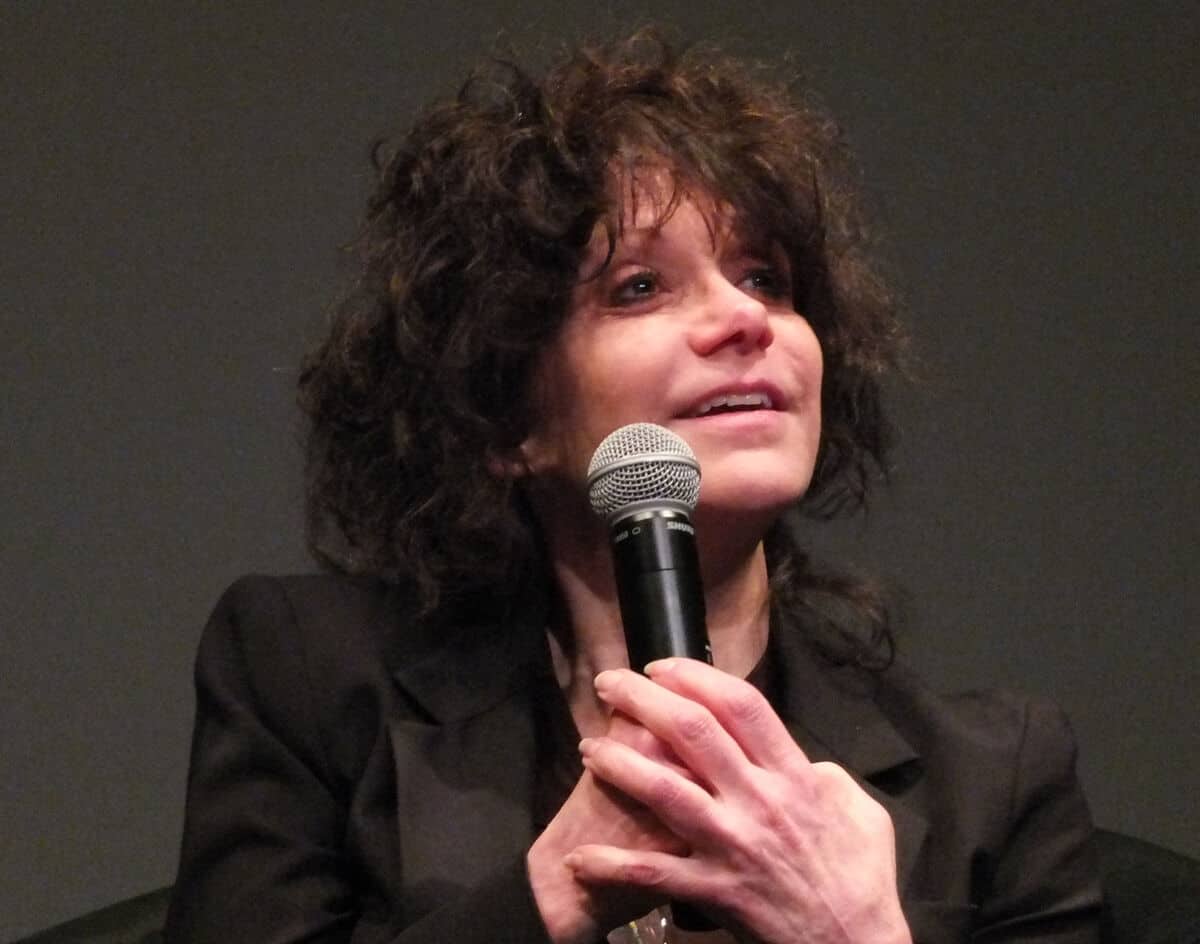Basic Information About Joel Coen
| Category | Celebrities › Directors |
|---|---|
| Professions | Screenwriter, Film director, Film Producer, Film Editor, Television producer, Actor |
| Net worth | $100,000,000 |
| Date of birth | 1954-11-29 (70 years old) |
| Place of birth | St. Louis Park |
| Nationality | United States of America |
| Curiosities and Trademarks | Frequently casts Steve Buscemi (6 times), spouse Frances McDormand (5 times), Jon Polito (5 times), John Goodman (5 times), John Turturro (4 times), George Clooney (3 times), Michael Badalucco (3 times), Charles Durning (twice), M. Emmet Walsh (twice), Peter Stormare (twice), Richard Jenkins (twice), John Mahoney (twice), Tony Shalhoub (twice), Stephen Root (4 times), and Billy Bob Thornton (twice). References to the films of Stanley Kubrick Films often center around or include a botched crime The Coens frequently focus on round spinning objects: hat in Miller's Crossing (1990), bowling balls and tumble-weed in The Big Lebowski (1998), hair pomade tins in O Brother, Where Art Thou? (2000), UFO and a car wheel in The Man Who Wasn't There (2001) ...or the fans in Blood Simple (1984). Often creates at least one lengthy sequence in most of his films where only music plays as a major event unfolds, i.e Raising Arizona (1987) when Nicolas Cage is being chased after robbing a store. Also sequences in Miller's Crossing (1990), The Big Lebowski (1998), The Man Who Wasn't There (2001), and Fargo (1996). Often has a certain phrase that is repeated throughout the movie or a specific scene. Typically makes movies set during a specific time period, often in the near-past (Fargo (1996) takes place in 1987, The Big Lebowski (1998) in 1991, and No Country for Old Men (2007) in 1980). Films usually contain at least one fast-talking character Films often include characters or places with the stereotypes of the regions they take place in (the Mid-Western accents and snow-covered landscapes for Fargo (1996), the Southwestern accents and barren deserts of Arizona for Raising Arizona (1987), the Southern accents and dust-bowl landscape for O Brother, Where Art Thou? (2000), Los Angeles accents and life-style in The Big Lebowski (1998), and the accents and cramped environments of Los Angeles in Barton Fink (1991)). His movies often have a victim of a crime who is completely unsympathetic (Fargo (1996), The Big Lebowski (1998), Raising Arizona (1987)) Men often explicitly suffer bizarre and bloody deaths or indignities in their films, but women are typically harmed off-screen (Fargo (1996), The Big Lebowski (1998), No Country for Old Men (2007), Barton Fink (1991)). Opening shot with the landscape of the area in which the movie is set and a voiceover (e.g. No Country for Old Men (2007), The Big Lebowski (1998), O Brother, Where Art Thou? (2000)). Use of phones ringing for long periods of time before a character answers of at all. Tom Reagan in Miller's Crossing (1990), The Dude in The Big Lebowski (1998), Anton Chigurh in No Country for Old Men (2007) and Barton Fink (1991). Elaborate, self-conscious homages to past films and filmmaking styles Highly exaggerated performances, particularly with eyes and voices Often begins movies with a voiceover by a southern character (see: Blood Simple (1984), The Hudsucker Proxy (1994), The Big Lebowski (1998), No Country for Old Men (2007)). Films frequently contain adulterous wives or girlfriends. See: Blood Simple (1984), Miller's Crossing (1990), Barton Fink (1991), The Man Who Wasn't There (2001), Intolerable Cruelty (2003), Burn After Reading (2008), A Serious Man (2009). Highly keen soundtracks (always handled by Skip Lievsay), in which mundane sounds are made to seem eerie or used for absurdist effect. Several Coen Brothers films feature a mysterious, purely evil antagonist, who are typically laconic, physically imposing and extremely violent Often has at least one male character with dated, unusual, or goofy hair Many of his films feature an amoral but intelligent character who works in business or law His protagonists are often ordinary people who find themselves caught up in extraordinary situations Almost all of his films involve a pivotal scene that takes place in a hotel room Several films contain scenes of graphic violence Dry humor A tense situation in a moving car. E.g. Fargo (1996), The Big Lebowski (1998), Burn After Reading (2008) and Blood Simple (1984). His films often feature a big male character who talks loudly or yells at the camera. E.g. John Goodman in The Big Lebowski (1998), Raising Arizona (1987), Barton Fink (1991) and O Brother, Where Art Thou? (2000) Often casts Josh Brolin Films combine multiple genres such as crime, noir, and screwball comedy Dark comedy. Moving POV shots, sometimes from the perspective of moving cars |
| Spouse | Frances McDormand - (1 April 1984 - present) (1 child) |
| Gender | Male |
| Height | 6 ft (1.83 m) |
| Social Media | ↗︎ Wikipedia ↗︎ IMDb |
Famous Network of Celebrities with Similar Net Worth
What Movie Awards did Joel Coen win?
 Oscar |
 Golden Globe |
 Golder Raspberry |
 BAFTA |
Other |
|---|---|---|---|---|
| 1 | 0 | 0 | 0 | 49 |
Joel Coen awards
| Award Name | State | Movie / Series Name | Year |
|---|---|---|---|
| SDFCS Award - Best Adapted Screenplay | Nominee | Unbroken | 2014 |
| SLFCA Award - Best Adapted Screenplay | Nominee | Unbroken | 2014 |
| Oscar - Best Writing, Screenplay Based on Material Previously Produced or Published | Nominee | O Brother, Where Art Thou? | 2001 |
| ACCA - Best Adapted Screenplay | Nominee | O Brother, Where Art Thou? | 2000 |
| Honorable Mention - Best Foreign Film | Winner | The Big Lebowski | 1998 |
| Golden Berlin Bear - Best Film | Nominee | The Big Lebowski | 1998 |
| Screen International Award - | Nominee | The Big Lebowski | 1998 |
| Silver Ribbon - Best Foreign Director (Regista del Miglior Film Straniero) | Nominee | The Big Lebowski | 1999 |
| Golden Aries - Best Foreign Film | Winner | The Big Lebowski | 1998 |
| IFJA Award - Best Original Screenplay | Nominee | Bridge of Spies | 2015 |
| Screenplay Competition - Best Original Screenplay | Nominee | Bridge of Spies | 2015 |
| WGA Award (Screen) - Best Original Screenplay | Nominee | Bridge of Spies | 2016 |
| Oscar - Best Motion Picture of the Year | Winner | No Country for Old Men | 2008 |
| Movies for Grownups Award - Best Director | Nominee | No Country for Old Men | 2008 |
| EDA Award - Best Picture | Winner | No Country for Old Men | 2007 |
| Amanda - Best Foreign Feature Film (Årets utenlandske kinofilm) | Nominee | No Country for Old Men | 2008 |
| Eddie - Best Edited Feature Film - Dramatic | Nominee | No Country for Old Men | 2008 |
| ACCA - Best Director | Winner | No Country for Old Men | 2007 |
| Bodil - Best American Film (Bedste amerikanske film) | Nominee | No Country for Old Men | 2009 |
| Top 10 Film Award - Best Film | Nominee | No Country for Old Men | 2008 |
| Palme d'Or - | Nominee | No Country for Old Men | 2007 |
| Chlotrudis Award - Best Adapted Screenplay | Nominee | No Country for Old Men | 2008 |
| Cinema Brazil Grand Prize - Best Foreign-Language Film (Melhor Filme Estrangeiro) | Nominee | No Country for Old Men | 2009 |
| Robert - Best American Film (Årets amerikanske film) | Winner | No Country for Old Men | 2009 |
| David - Best Foreign Film (Miglior Film Straniero) | Winner | No Country for Old Men | 2008 |
| DGA Award - Outstanding Directorial Achievement in Motion Pictures | Winner | No Country for Old Men | 2008 |
| Edgar - Best Motion Picture Screen Play | Nominee | No Country for Old Men | 2008 |
| Golden Train Award - Best Film | Nominee | No Country for Old Men | 2007 |
| FCCA Award - Best Foreign Film - English Language | Winner | No Country for Old Men | 2008 |
| Golden Eagle - Best Foreign Film | Nominee | No Country for Old Men | 2009 |
| Golden Schmoes - Best Director of the Year | Winner | No Country for Old Men | 2007 |
| Guldbagge - Best Foreign Film (Bästa utländska film) | Nominee | No Country for Old Men | 2009 |
| IOFCP Award - Best Director of the Decade | Nominee | No Country for Old Men | 2010 |
| IOFCP Award - Best Film Editing | Winner | No Country for Old Men | 2009 |
| Silver Ribbon - Best Non-European Director (Regista del Miglior Film Non-Europeo) | Nominee | No Country for Old Men | 2008 |
| Kinema Junpo Award - Best Foreign Film | Winner | No Country for Old Men | 2009 |
| PGA Award - Outstanding Producer of Theatrical Motion Pictures | Winner | No Country for Old Men | 2008 |
| White Elephant - Best Foreign Film | Winner | No Country for Old Men | 2008 |
| SFFCC Award - Best Director | Winner | No Country for Old Men | 2007 |
| Critics Award - Best Foreign Director (Melhor Diretor Estrangeiro) | Winner | No Country for Old Men | 2009 |
| USC Scripter Award - | Winner | No Country for Old Men | 2008 |
| WGA Award (Screen) - Best Adapted Screenplay | Winner | No Country for Old Men | 2008 |
| EDA Award - Best Writing, Original Screenplay | Nominee | Hail, Caesar! | 2017 |
| Eddie - Best Edited Feature Film - Comedy | Nominee | Hail, Caesar! | 2017 |
| Yoga Award - Worst Foreign Director | Winner | Hail, Caesar! | 2017 |
| David Lean Award for Direction - | Winner | Fargo | 1997 |
| Felix - Best Director | Winner | Fargo | 2017 |
| Eddie - Best Edited Feature Film | Nominee | Fargo | 1997 |
| Honorable Mention - Best Foreign Film | Winner | Fargo | 1996 |
| Bodil - Best American Film (Bedste amerikanske film) | Winner | Fargo | 1997 |
Joel Coen roles
Joel Coen's Quotes
- Frequently we are writing characters and we are thinking, "Wouldn't it be interesting to see such and such play this kind of a person?", and the character starts to grow out of that as you are writing it. It's a combination of things that you are making up and what you know about the actor.
- It's a funny thing; people sometimes accuse us of condescending to our characters somehow -- that to me is kind of inexplicable.
- [on filmmaking] I can almost set my watch by how I'm going to feel at different stages of the process. It's always identical, whether the movie ends up working or not. I think when you watch the dailies, the film that you shoot every day, you're very excited by it and very optimistic about how it's going to work. And when you see it the first time you put the film together, the roughest cut, is when you want to go home and open up your veins and get in a warm tub and just go away. And then it gradually, maybe, works its way back, somewhere toward that spot you were at before.
- I hate when people cry in movies. It's particularly disconcerting when you're sitting at a really awful movie and you hear people all around you sobbing and blowing their noses.
- We've never considered our stuff either homage or spoof. Those are things other people call it, and it's always puzzled me that they do.
Interesting Facts about Joel Coen
- He and his wife adopted a baby boy from Paraguay in 1994 and named him Pedro McDormand Coen.
- Used to receive sole credit as director for the Coen brothers movies', but has always directed films with his brother Ethan Coen (they also write and produce their films together). This was changed with The Ladykillers (2004), and now they both receive credit for directing and producing.
- Works so closely with his brother Ethan Coen that the two of them have been jokingly referred to as "The Two-Headed Director".
- Alumnus of Simon's Rock College, Great Barrington, Massachusetts, along with brother Ethan Coen. This is a fully-accredited college for students who typically enter at the age of 16 - before graduating high school.
- He and brother Ethan Coen have had final cut on all of their films since Blood Simple (1984), their debut film.
- Ranked #88 in Premiere's 2003 annual Power 100 List with brother Ethan Coen. They had been ranked #92 in 2002.
- Brother-in-law of Tricia Cooke.
- Frequently includes kidnapping-plots in his films.
- Often has a scene that takes place in dark areas with a sense of dark humor. In The Big Lebowski (1998), The Dude talks to Jeffery Lebowski in a dark room with fire; In O Brother, Where Art Thou? (2000), The Devil's henchmen capture Pete with thunder in the background; In Intolerable Cruelty (2003), Miles meets with Myerson in the dark room with only a glare of light showing Myerson's face; In Fargo (1996), Shep starts beating up Carl in a dim-lighted room.
- When an actor improvises a line on the set, he will almost invariably say something like, "That was great, but could you do it like it's written in the script?" Most Coen brothers films are the same (line for line) when released as they are on the page in the final draft of the script.
- Resides in New York City with his family.
- As his brother, he graduated from Simon's Rock Early College in Great Barrington, MA. He later attended New York University's undergraduate film program to finally graduate after four years there.
- In his childhood, he saved money from mowing lawns to buy a Super-8 camera.
- Born to Edward Coen, an economist at the University of Minnesota, and his wife Rena, an art historian at St. Cloud State University.
- He (along with his brother Ethan Coen) is part of the prestigious group of individuals to have won Oscars for writing, directing and producing in the same year, for the film No Country for Old Men (2007). The others are Peter Jackson for The Lord of the Rings: The Return of the King (2003), James L. Brooks for Terms of Endearment (1983), Francis Ford Coppola for The Godfather: Part II (1974), Billy Wilder for Het appartement (1960), Alejandro G. Iñárritu for Birdman or (The Unexpected Virtue of Ignorance) (2014) and Bong Joon Ho for Gisaengchung (2019). James Cameron also won three Oscars for Titanic (1997), but they were for directing, producing and editing.
- Only three times in Academy Award history have director-collaborators been nominated for Best Directing Oscars: Robert Wise and Jerome Robbins for West Side Story (1961), Warren Beatty and Buck Henry for Heaven Can Wait (1978) and Joel Coen and Ethan Coen for No Country for Old Men (2007). (Wise/Robbins and the Coens actually won the award).
- Directed 6 different actors in Oscar-nominated performances: Michael Lerner, Frances McDormand, William H. Macy, Javier Bardem, Jeff Bridges, and Hailee Steinfeld. McDormand and Bardem won Oscars for their performances in two of his movies.
- The first Coen brothers film where both he and brother Ethan Coen are given directing and producing credits was The Ladykillers (2004). They have shared these duties on all of their films, but Joel has always been listed as director and Ethan as producer.
- Has a younger sister named Deborah, who is a psychiatrist.
- His mother, Rena Neumann Coen, died of kidney disease in 2001.
References & Fact Checks ✅
- 1/ Filename: coen-brothers-cannesph-06A757F5.jpg
-
- Checked: ✅ Yes (2023-07-02 04:17:49)
- Source URL: https://en.wikipedia.org/wiki/File:COEN_Brothers_(cannesPH).jpg
- Original Source:
Own work - Author: Created by Rita Molnár 2001
- Licence: Creative Commons Attribution-Share Alike 2.5 Generic, 2.0 Generic and 1.0 Generic license.
- Date taken: 2001
- 2/ Filename: javier-bardem-coen-brothers-x21V210t.jpg
-
- Checked: ✅ Yes (2023-07-02 04:17:50)
- Source URL: https://en.wikipedia.org/wiki/File:Javier_Bardem_Coen_brothers.jpg
- Original Source:
Own work - Author: Georges Biard
- Licence: Creative Commons Attribution-Share Alike 3.0 Unported license.
- Date taken: 2007
- 3/ Filename: coen-brothers-cannes-2015-V4EITf0o.jpg
-
- Checked: ✅ Yes (2023-07-02 04:17:51)
- Source URL: https://en.wikipedia.org/wiki/File:Coen_brothers_Cannes_2015.jpg
- Original Source:
Own work - Author: Georges Biard
- Licence: Creative Commons Attribution-Share Alike 3.0 Unported license.
- Date taken: May 2015





















